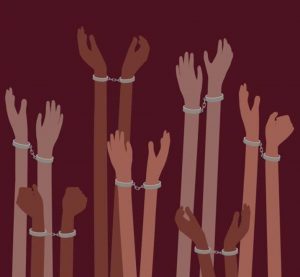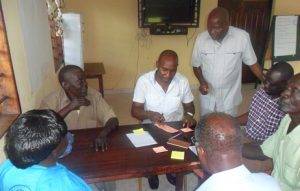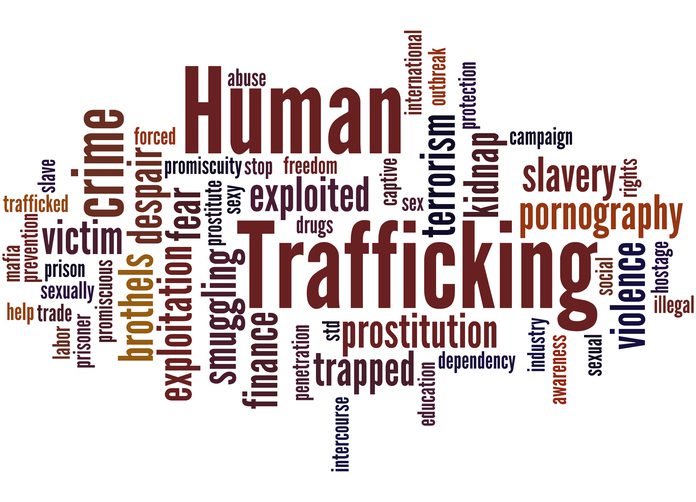Addressing an Increasing Risk: Human Trafficking Among Children with Disabilities
by Lauren Blair
Posted on April 14, 2023
Beliefs, Child, disability, education, Health, International, marginalized, stigma, vulnerable
Throughout the world, children with disabilities face increased vulnerabilities, including in the arena of human trafficking. Worldwide, almost 20% of human trafficking victims are children, and those with intellectual and developmental disabilities are disproportionately affected. This is particularly evident in Kupenda’s reach area, where high tourism and poverty meet, enhancing the likelihood of trafficking.
Points of Vulnerability
Children with disabilities are targeted in the trafficking industry for a multitude of reasons:
• Medical Support – Some perpetrators offer promises of much-needed medical equipment or medication.
 • Economic Gain – 80% of people with disabilities live in poverty due to higher medical costs and limited employment opportunities. This often makes victims dependent on abusive caretakers. Furthermore, children with disabilities may be thought to garner more sympathy in forced begging situations.
• Economic Gain – 80% of people with disabilities live in poverty due to higher medical costs and limited employment opportunities. This often makes victims dependent on abusive caretakers. Furthermore, children with disabilities may be thought to garner more sympathy in forced begging situations.
• Social Stigma – Many low-income populations maintain harmful stigmas surrounding disabilities. This leads to isolation and a reduced likelihood that others will become aware of an abusive situation and intervene.
• Lack of Education or Understanding – In low- and middle-income countries, only 2% of children with disabilities attend school. These education gaps often reduce a child’s sense of empowerment, preventing them from speaking out. In addition, those with intellectual disabilities may have a poor understanding of dangerous situations.
Education gaps also affect other community members. In some regions, some pastors and healers have sexually exploited mothers as a way of “healing” their child. Other community members believe that sleeping with children can heal sexually transmitted diseases.
• Communication and Accessibility Barriers – Many children with disabilities are limited in their physical ability to escape or communicate in order to report harmful behavior.
• Psychological or Physical Harm – Children who have become victims of trafficking may participate in risky forced labor jobs that lead to injury and further disability. In addition, the very nature of trafficking lends itself to psychological distress. All these factors may contribute to further dependence on others for survival.
Kupenda’s Trafficking Interventions
Kupenda works to reduce the exploitative practices of human trafficking among children with disabilities on a variety of levels.
By connecting children with educational opportunities tailored to meet their needs, Kupenda provides them with a safe environment where they are better equipped to learn how to communicate and self-advocate as well as be more empowered for future economic success.

Pastors participating in a Kupenda Disability Advocacy Workshop
Kupenda also reduces vulnerability by providing appropriate access to continuous medical care. With the aid of consultations, medication, assistive devices, and physical therapy, many children with disabilities are better equipped to protect themselves and reduce their dependence on others.
In fact, at the very heart of its mission, Kupenda seeks to transform harmful beliefs surrounding disabilities to those that improve lives. By advocating for the rights and value of people with disabilities through family counseling, community leader workshops, and Disability Awareness Days, Kupenda has a proven track record of reducing stigma and empowering leaders to better define disability, identify its causes and interventions, and provide loving, inclusive support.
For the last few years, Kupenda’s Child Case Monitoring Mobile App has also provided an emergency care feature which allows community leaders and staff to promptly report cases of abuse and provide necessary care.
Partnerships for Success
As Kupenda looks to the future, we continue to partner with other non-governmental agencies (NGOs) to help them expand their missions to include people with disabilities. Recently, Kupenda visited with Trace Kenya, a Mombasa-based NGO working to prevent human trafficking, protect victims, and prosecute offenders. Following Kupenda’s visit, Trace made a commitment to increase their awareness of trafficking issues related to children with disabilities and inform Kupenda in future cases.
Similarly, we also depend on the support of child sponsors and donors who equip children with disabilities to receive the necessary services to live safe and healthy lives. Please consider joining with us to provide a safe haven for a child with a disability, so that he or she may develop into their God-given potential, free from the exploitations of others.



Leave a Reply